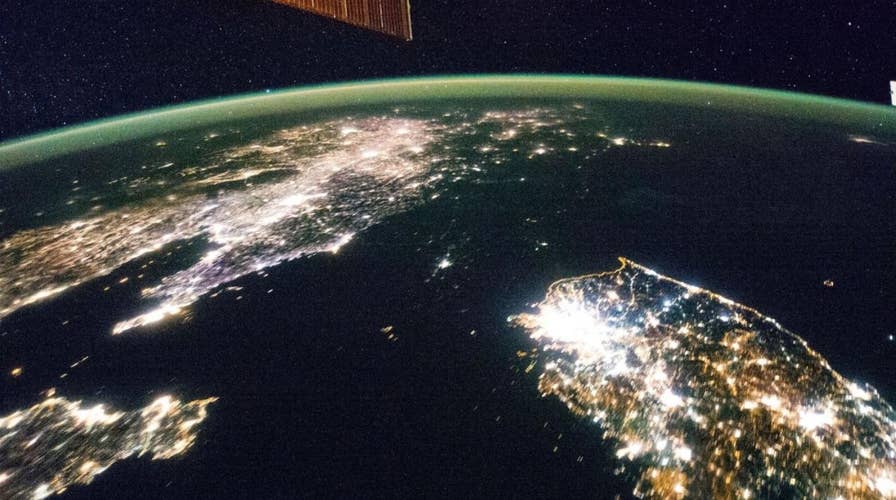North Korea lying? Very possible, according to new data
North Korea, China and Russia may be lying about their GDP. A look at what the latest research is revealing.
A new research paper suggests that authoritarian regimes, in countries like China, Russia and North Korea are manipulating their gross domestic product (GDP), perhaps by as much as 15 to 30 percent in any one year.
The paper, written by University of Chicago's Luis R. Martinez, discovered that GDP is likely to be inflated even more when there is a "stronger incentive" to do so, such as right before elections or following a year of weaker-than-expected growth.
"The gradient is larger when there is a stronger incentive to exaggerate economic performance (years of low growth, before elections or after becoming ineligible for foreign aid) and is only present for GDP sub-components that rely on government information and have low third-party verification," the study's abstract reads. "The results indicate that yearly GDP growth rates are inflated by a factor of between 1.15 and 1.3 in the most authoritarian regimes."
NEW AIR FORCE WEAPONS STRATEGY SPEEDS MISSILE WARNING, HYPERSONICS AND F-35 TECHNOLOGY
Martinez used satellite imagery that tracks nighttime lights and the level at which they change within countries over time.
In an email to The Washington Post, Martinez said the paper tries to look at whether the checks and balances that democracy is supposed to provide is enough to " constrain governments’ desire to manipulate information or, more specifically, their desire to exaggerate how well the economy is doing."
Martinez told the newspaper that a 10 percent increase in nighttime lights is the equivalent of a 2.4 percent increase in GDP in democracies such as the U.S., Canada and Western Europe. However, a 10 percent increase in nighttime lights in authoritarian countries resulted in a GDP increase anywhere from 2.9 percent to 3.4 percent, significantly higher than what is seen in free and open democracies.
"These findings indicate that the main result about democracy and autocracy is indeed driven by the differences in political institutions that characterize these regimes," Martinez said, according to The Post.
GDP, defined as a "monetary measure of the market value of all final goods and services produced in a period of time," is a self-reported number which is "prone to manipulation," Martinez added.
In 2017, China's self-reported GDP rose 6.9 percent year-over-year.
According to the International Monetary Fund, China has the second-largest economy by country in the world, at just over $12 trillion. The U.S. is still the largest, at $19.39 trillion.
Collectively, the European Union is larger than China, at $17.31 trillion.
This isn't the first time there have been accusations China has altered its GDP. In fact, the country itself has previously admitted to fudging the numbers.
In 2015, the Global Times, an English-language Chinese newspaper, wrote that that inflated statistics in certain provinces were causing a problem for local economies.
In 2016, the issue cropped up again, when Ning Jizhe, director of the National Bureau of Statistics, wrote in a column for Communist party agent the People’s Daily that some data was false, according to The Financial Times.
“Currently, some local statistics are falsified, and fraud and deception happen from time to time, in violation of statistics laws and regulations," Jizhe wrote in the op-ed, which has since been taken down.
In 2017, Liaoning Province Governor Chen Qiufa admitted data had been manipulated from 2011 to 2014, but did not say by how much, according to Financial Review.
Martinez's study is also not the first to look at the correlation between nighttime lighting and changes in economic activity. In 2012, economists J. Vernon Henderson, Adam Storeygard and David N. Weil looked at satellite data to "augment official income growth measures."
Their data found that "countries with poor national income accounts, the optimal estimate of growth is a composite with roughly equal weights on conventionally measured growth and growth predicted from lights. Our estimates differ from official data by up to three percentage points annually."
Fox News has reached out to the governments of North Korea, Russia and China for comment on this article.
Follow Chris Ciaccia on Twitter @Chris_Ciaccia





















